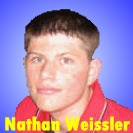
In 2000, Holocaust survivors Jack and Ina Soep Polak published
Steal a Pencil for Me a book of their letters to one another while
interned in Westerbork and Bergen-Belsen concentration camps. A documentary
movie also entitled Steal a Pencil for Me was subsequently made of
their lives. The Polaks have additionally spoken widely about the Holocaust and
their personal experiences especially to youth and school groups. Jack Polak
also served as President of the Anne Frank Center USA based in New York City for
many years and is now President Emeritus. For his work, he was knighted by Queen
Beatrix of the Netherlands on his eightieth birthday—December 31, 1992.
One evening, earlier this spring, I interviewed Jack and Ina Polak by telephone
and learned a lot about their life experiences. Jack Polak was born in
Amsterdam, Holland and raised in an Orthodox home. His father was active in the
Mizrachi—Religious Zionist movement. Ina Soep, like her future husband, was born
in Amsterdam on January 3, 1923, and was also raised Orthodox. Her father was
head of the Ashkenazic Jewish Community of Amsterdam.
The schools in Amsterdam had only a half-day of classes on Shabbat, so the
Polaks and their religious peers could not attend school. Jack Polak recalled,
“We always picked up the work which was done on a Saturday morning by non-Jewish
friends on a Sunday morning.” Ina Polak also described her early childhood years
as joyous and peaceful. Although acknowledging a few individual cases of
discrimination, she emphasized that, “It [Holland] was a very quiet, small
country. There was no anti-Semitism. If there was any, it was never overt.”
In 1939, Jack Polak married Manja Pribludny whose family had come to the
Netherlands from Russia. He then joined his father who was a Certified Public
Accountant (CPA) in his practice as a tax consultant. In July 1943, Polak and
Manja were arrested by the Nazis and subsequently deported to Westerbork where
Polak worked as a school principal. They were later transferred to
Bergen-Belsen, a concentration camp in Germany. After their liberation, Jack and
Manja Polak divorced--their marriage had been unhappy for a significant amount
of time by then. On January 29, 1946, Polak married Ina Soep whom he first met
in 1943 at a Shabbat afternoon birthday party and dated in the concentration
camps. Ina had been arrested in Amsterdam by the Nazis on Rosh Hashanah in 1943.
After the war, Jack and Ina Polak continued to live in Amsterdam for five years
after which they settled in Eastchester, New York. They had three children:
Frederick Benno Polak; Anthony Gerald Polak and Margrit Betty Polak. As
previously mentioned, Polak is President Emeritus of the Anne Frank Center USA.
“It’s all about education of course,” Ina Polak told me about the Anne Frank
Center, “and it was first only about Anne Frank….[now] It’s more general you
know [it emphasizes among other things teaching] tolerance [and combating]
hate.” Polak was a founding member of the Westchester Holocaust Commission now
known as the Holocaust and Human Rights Education Center in Westchester County,
New York in addition to the New York State Holocaust Commission.
When I asked about how long and in what context the Holocaust will be
remembered, Jack Polak told me, “… if you compare the way how important the
Holocaust is now with…forty or fifty years ago, there’s no comparison. Today
finally the Holocaust is important for the rest of the world.” As an example,
Polak told me that when Elie Wiesel spoke at his family’s synagogue in 1960 only
thirty people attended while more like a thousand people would come and hear him
today.
Finally, what Ina Polak told me largely, though not solely, referring to the
Holocaust, “…major, major historical events—they never totally die. They will
always be remembered" should not only resonate with us but should, in the spirit
of L Dor Va Dor, motivate us to continue this reality.
Today the Polaks live in Eastchester, New York and are still active in Holocaust
education and remembrance.
For more information, see a brief informative article on the Anne Frank Center
USA
website.
If you would like to subscribe (it's free) to the Gantseh Megillah click here
This project is financed by the generous contributions of our subcribers